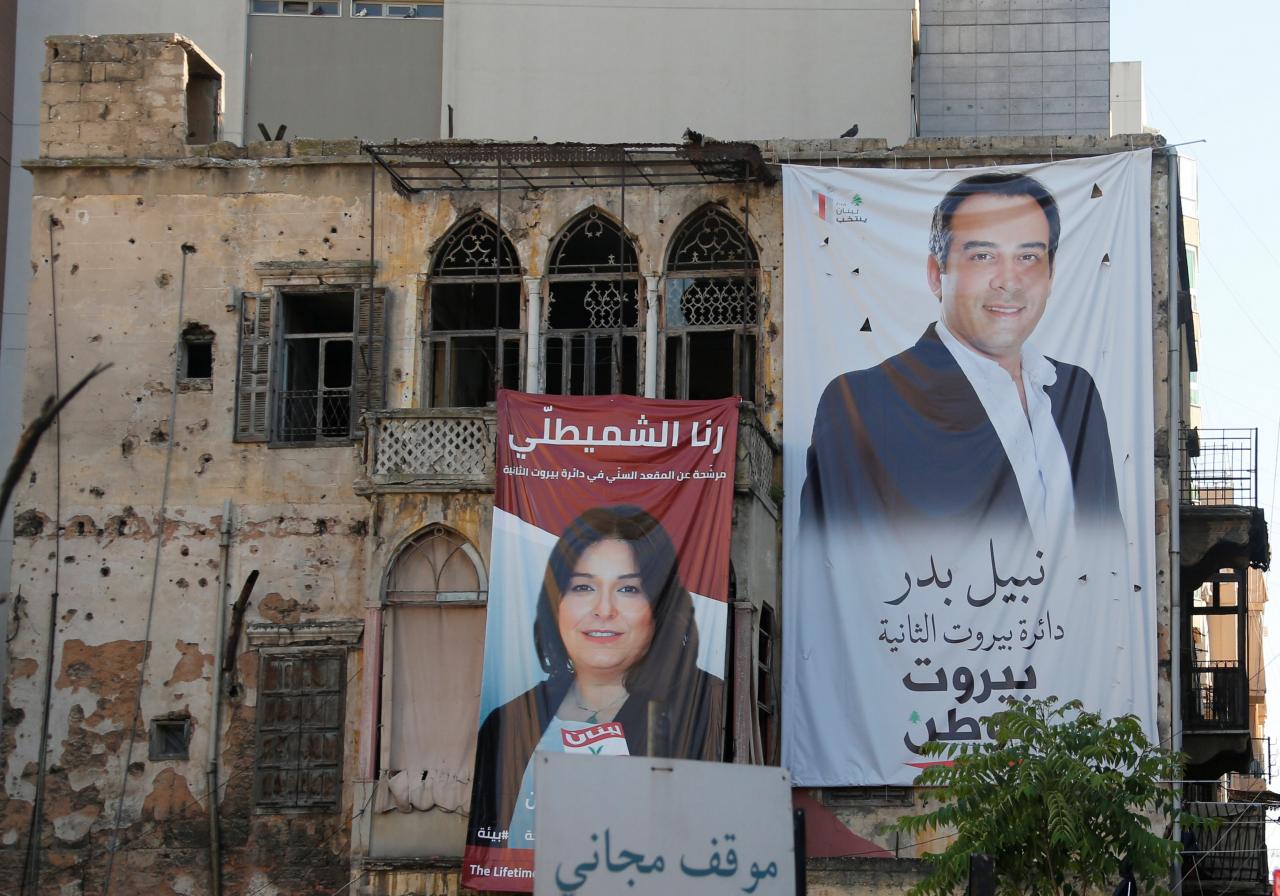Tensions flare up before Lebanon legislative election
Arab News,
April 24, 2018 12:00
Incidents
of political violence including an assault on one candidate and an attack on
the office of another are casting a shadow over Lebanon's first general
election in nine years.
 |
| Posters of Lebanese parliament candidates are seen on a building in Beirut, Lebanon April 23, 2018. (Reuters) |
But the
law has made the outcome less predictable in some places. This has sharpened
local rivalries and is encouraging parties to campaign extra hard.
"The
threats to candidates, men and women, are escalating. We expect more of them as
we approach the election, and we expect an increase in violence," said
Omar Kabboul, the executive director of the Lebanese Association for Democratic
Elections (LADE), a group of independent electoral observers.
"The
outcome of the elections is uncertain. The more uncertain the outcome, the more
fear there is within the parties and the bigger the agitation in
speeches."
Some 28
years after Lebanon's civil war, nobody expects any major strife, but the
country has been plagued by repeated bouts of political instability that have
weighed on its economy.
The
Lebanese system divides up power according to strict sectarian quotas, with
parliament's 128 seats split evenly between Christian and Muslim groups. The
flare-ups reported so far have pitted rivals from the same sect against each
other.
The army
intervened on Sunday night to break up a confrontation between supporters of
rival Druze parties south of Beirut in which guns were fired in the air, a
security source said. The standoff spiralled from a row over electoral posters.
Also on
Sunday, an independent Shi'ite candidate said Hezbollah supporters beat him up
in their southern Lebanon stronghold, where he is standing against the two
dominant Shi'ite parties Hezbollah and Amal.
Ali al-Amin
said a group of more than 30 Hezbollah supporters accosted him while he was
hanging an election poster in his home village of Shaqra in Bint Jbeil
district.
"I
accuse... a political side, which is Hezbollah, of arranging this incident and
I hold it mainly responsible," he said, adding that the group "could
not tolerate the presence of one photo or poster of a candidate who is against
them".
Ali Saleh, the pro-Hezbollah head of the local council, said it was an "individual incident" that was now in the hands of the judiciary and security forces. "Ali al-Amine is a candidate ... and every candidate has the right to practice his media campaign and his electoral campaign," he said.
Ali Saleh, the pro-Hezbollah head of the local council, said it was an "individual incident" that was now in the hands of the judiciary and security forces. "Ali al-Amine is a candidate ... and every candidate has the right to practice his media campaign and his electoral campaign," he said.
CONFRONTATION
The heavily armed, Iran-backed Hezbollah, which gained legitimacy among many Shi'ites by fighting Israeli forces that occupied the south until 2000, has taken part in Lebanese elections since the early 1990s, enjoying an effective duopoly of the Shi'ite vote with Amal.
The heavily armed, Iran-backed Hezbollah, which gained legitimacy among many Shi'ites by fighting Israeli forces that occupied the south until 2000, has taken part in Lebanese elections since the early 1990s, enjoying an effective duopoly of the Shi'ite vote with Amal.
The
parliamentary election has been postponed three times, chiefly because
Lebanon's fractious politicians could not agree on the new election law that
was demanded by Christian parties.
It has
redrawn constituency boundaries and introduced a new proportional
representation system that experts say has been engineered to suit the dominant
political players but has still left a good deal of uncertainty at the local
level.


